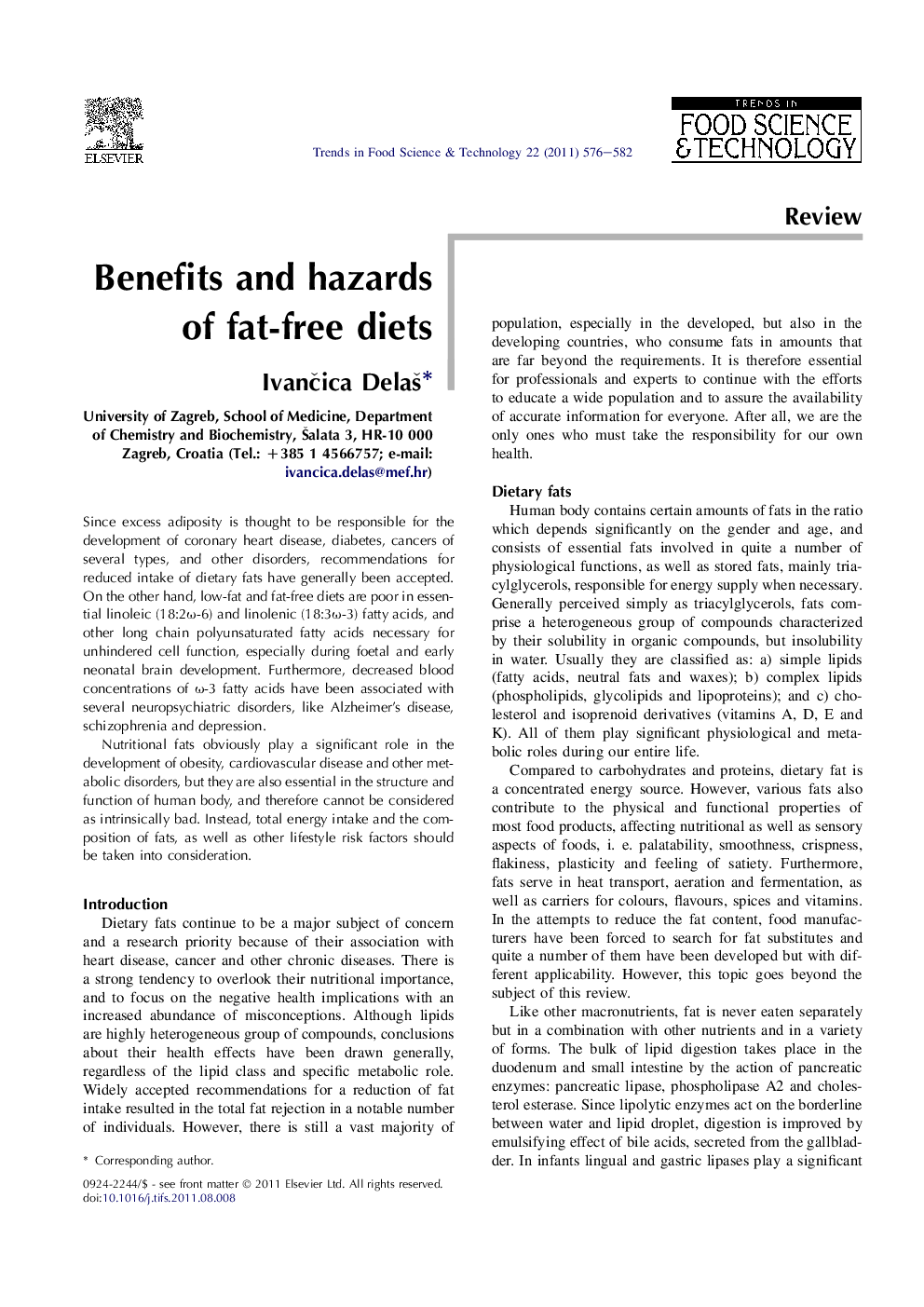| Article ID | Journal | Published Year | Pages | File Type |
|---|---|---|---|---|
| 2098962 | Trends in Food Science & Technology | 2011 | 7 Pages |
Since excess adiposity is thought to be responsible for the development of coronary heart disease, diabetes, cancers of several types, and other disorders, recommendations for reduced intake of dietary fats have generally been accepted. On the other hand, low-fat and fat-free diets are poor in essential linoleic (18:2ω-6) and linolenic (18:3ω-3) fatty acids, and other long chain polyunsaturated fatty acids necessary for unhindered cell function, especially during foetal and early neonatal brain development. Furthermore, decreased blood concentrations of ω-3 fatty acids have been associated with several neuropsychiatric disorders, like Alzheimer’s disease, schizophrenia and depression.Nutritional fats obviously play a significant role in the development of obesity, cardiovascular disease and other metabolic disorders, but they are also essential in the structure and function of human body, and therefore cannot be considered as intrinsically bad. Instead, total energy intake and the composition of fats, as well as other lifestyle risk factors should be taken into consideration.
